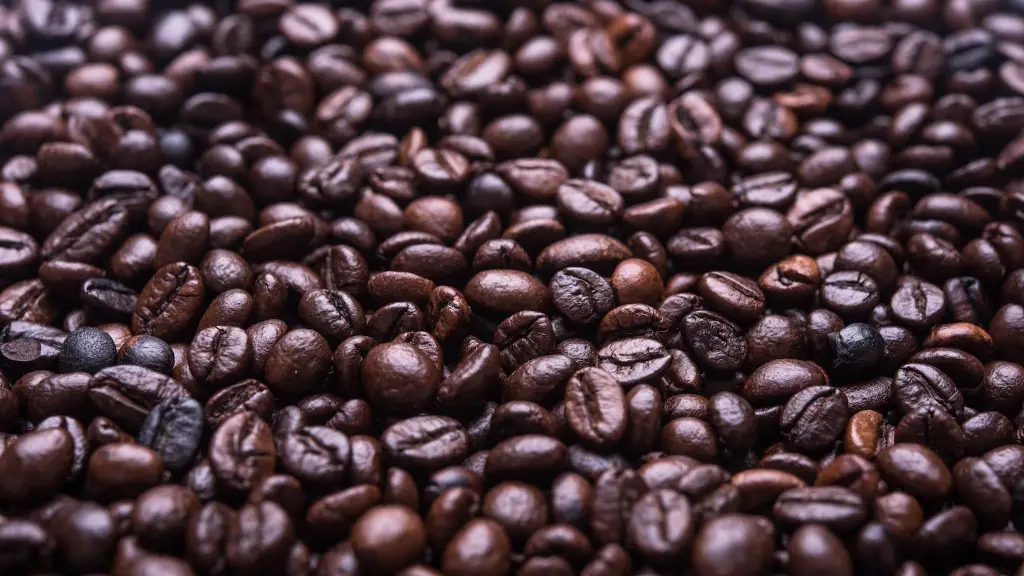The biological process
A woman’s menstrual cycle occurs each month as a process whereby the body prepares itself for a potential pregnancy. During this process, hormones known as oestrogen and progesterone are released which lead to physical, emotional and psychological changes. This is known as the premenstrual phase prior to menstrual bleeding.
Coffee is a widely consumed beverage that can act as a stimulant due to the presence of caffeine. Caffeine can increase alertness and energy levels but can also have adverse effects such as anxiety and restlessness.
Some medical experts believe that consuming large amounts of caffeine in the premenstrual phase is not recommended as it exacerbates some of the symptoms experienced during this stage. Caffeine is said to increase the levels of stress hormones in the body as well as affect blood sugar levels.
The psychological impact
Psychological distress is often thought to be linked to changes in hormonal levels during the premenstrual phase. Symptoms may include fatigue, irritability, tearfulness, depression and anxiety. Caffeine is thought to make the physical symptoms of the premenstrual phase more intense and enhance the psychological distress already felt.
Furthermore, certain foods and behaviours can emotionally trigger us during this period, making us vulnerable to more intense negative emotions if a certain behaviour is associated with feeling down. Drinking coffee may become an emotion trigger as it can be associated with feeling more alert and upbeat which then causes further distress if not achieved.
The effects of caffeine
Caffeine is known to interfere with the hormones released during the premenstrual phase, particularly progesterone which is essential for menstrual health. Caffeine is seen to reduce the levels of progesterone, worsening symptoms such as bloating, mood swings, cramps, fluid retention and fatigue. In extreme cases, if consumed too regularly, this can lead to problems with fertility.
It has also been proposed that caffeine has a dehydrating effect. Caffeine is known to increase the speed of the digestive process, leading to urination which can affect the body’s water balance and result in feelings of tiredness.
The need for alternative solutions
Whilst it is not recommended to drink coffee during the premenstrual phase, it is essential to find alternative methods that help reduce physical and psychological symptoms. One of the main solutions is to eat a balanced diet, avoid sugary snacks and have adequate sleep. This can help manage hormone levels in the body.
Mental health experts also suggest following activities such as exercise and mindful meditation as these can help to reduce stress, anxiety and depression. Practising yoga has been known to be beneficial during this period due to the physical, mental and spiritual benefits.
Natural alternatives to coffee
Herbal teas can provide a substitute for coffee. Rose tea and chamomile tea are known to reduce stress levels and help to improve mood and energy levels. Green tea is rich in antioxidants which can help to reduce inflammation. Furthermore, fresh juices, such as coconut water and fresh juices, can help to replenish and hydrate the body. Supplements such as magnesium and folic acid are also believed to be beneficial during this period.
Finally, listening to music and spending time with friends can help to improve mood levels and make the premenstrual phase more manageable. It is important to be aware of physical and psychological symptoms and to find methods that can help to reduce these levels.
The importance of self-care
The premenstrual phase can be an emotional and challenging time for some women. It is therefore essential to take time out and practise self-care by having an early night, consuming a balanced diet and taking up relaxation techniques such as yoga or mindfulness. At this time, it is also important to think positively, be aware and be kind to yourself.
Self-care is not only beneficial in managing premenstrual symptoms but it is also important in reducing anxiety and improving mood levels. Furthermore, learning to recognise symptoms and seek support is key in helping to make this difficult period more manageable.
Total avoidance of caffeinated drinks
It’s not essential to totally avoid caffeine, however, limiting its intake to 2-3 cups of coffee, tea or other caffeinated beverages per day and avoiding regular consumption of all caffeinated drinks during the premenstrual phase altogether is recommended.
It may be beneficial to substitute regular coffee for natural alternatives such as dandelion, chicory or turmeric latte. A balanced diet with sufficient sleep and relaxation techniques can help to promote physical and psychological wellbeing and make the premenstrual phase more manageable.
Positive reinforcement
Whilst the premenstrual phase can be challenging and uncomfortable, it is important to be mindful of the changes in the body and embrace them as part of being a woman. Understanding the body and how it works has been shown to be empowering and validating.
The premenstrual phase can be seen as a reminder to take time out to practise self-care and look after yourself. It is important to listen to your body, respect its natural processes and find ways to make the experience more positive.
Conclusion
To conclude, whilst coffee can be a stimulant and lift mood levels, it is not always recommended for women during the premenstrual period. This is due to the adverse effects of caffeine on the hormones released during this process as well as its dehydrating effects. It is important to be aware of the changes in the body and to be indulgent in practising self-care to make the experience more manageable. Following a balanced diet and partaking in activities such as exercise, yoga, or mindful meditation can be beneficial during this time. Natural alternatives to coffee such as herbal teas, fresh juices and supplements can help to sustain energy levels and reduce symptoms that come with the premenstrual phase.




